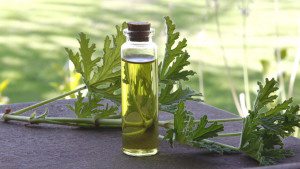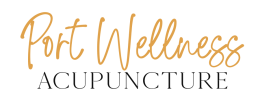Essential Oils
 Essential Oils can be used as a stand-alone therapy (inhalation, baths or massage) or in place of needles, by being massaged into acupoints. I apply Chinese medical theory to essential oil therapy. Medical uses of essential oils are referred to in the legendary writings of Huang Di, the Yellow Emperor of China, dating from approximately 2697 BCE. References also appear in ancient Egyptian papyrus records, in Greek writings (who adopted it from Egypt), in India’s Aryu Veda medicinal writings, from Persian and Islamic scholars, and even St Hildegard of Bingen in the 12th century.
Essential Oils can be used as a stand-alone therapy (inhalation, baths or massage) or in place of needles, by being massaged into acupoints. I apply Chinese medical theory to essential oil therapy. Medical uses of essential oils are referred to in the legendary writings of Huang Di, the Yellow Emperor of China, dating from approximately 2697 BCE. References also appear in ancient Egyptian papyrus records, in Greek writings (who adopted it from Egypt), in India’s Aryu Veda medicinal writings, from Persian and Islamic scholars, and even St Hildegard of Bingen in the 12th century.
What Are Essential Oils?
Essential Oils are the volatile constituents of a plant, which contain its most active physiological qualities. In the living plant, these components are used in growth, reproduction/pollination and defense (against insects or herbivores, as well as against bacterial, viral and fungal attack). In most cases, a process of steam distillation or cold-processing extracts these volatile constituents of the plant’s oil (the “essence”) from its flowers, leaves, branches, seeds, bark or roots. Some oils are produced using high pressure in the presence of C02 gas, while others are extracted using solvents. When using essential oils therapeutically, care must be taken to select only the purest and preferably organic oils from a reputable supplier. Products sold as “aromatherapy” for room fragrance are not appropriate for medicinal use.
Obtaining The Right Remedy For You
Essential oils resonate with different states of mind, as well as having distinct physical and physiological effects. A comprehensive interview will help determine which oils and which therapeutic application is right for you.
Question: What are some good oils to keep on hand at home?
Lavender, Peppermint, Tea Tree and Lemon are safe for most people (unless you have an allergy or sensitivity) and versatile. When using essential oils therapeutically, it is important to look for organic ones.
Lavender oil is good for relaxation, insomnia, shock, trauma and – not many people know this – burns. Don’t store it in the kitchen, but keep it handy in case you experience a steam or oil burn, or accidentally touch a hot pan. It’s also good for diaper rash. It’s safe for most people to apply directly to the skin, but it’s best to test it in a small area first. It can also be applied to a tissue or cotton ball next to the bedside.
Peppermint is good for headaches: dab it on the temples and/or forehead. Students can inhale it while studying, as it helps them “digest” information. Add 2 drops to a cup of hot water and inhale the fumes to open the sinuses, but don’t put your face too close to the vapors.
Tea Tree is a classic anti-viral, anti-fungal, anti-bacterial oil. Diffuse it on a tissue or cotton ball next to the bed if someone has a cold. A dilution can be applied to insect bites, burns, athletes foot and diaper rash. It’s an excellent oil for travelling.
Lemon essential oil can be diffused (on a cotton ball or tissue) to disinfect a room where someone is sick. It can be added to baths to relieve muscle soreness, and can be combined with Lavender to relieve stress. If someone is sick, it can also be combined with Tea Tree to diffuse in a room. Lemon oil is typically heavily sprayed with pesticides, so obtaining an organic brand is important.
If you would like to include essential oils as part of your home care, schedule a consultation to determine what’s best for you.
